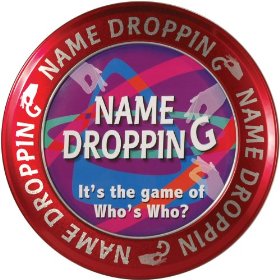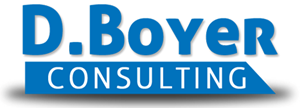Business is mostly conducted via email or phone communications.
Office hours 10:00 a.m. to 6:00 p.m, Mon. - Thurs., and 10:00 a.m. to 2:00 p.m. on Fridays.
SEND EMAIL INQUIRIES DIRECTLY TO:
Dawn.Boyer@me.com
Business is mostly conducted via email or phone communications.
Office hours 10:00 a.m. to 6:00 p.m, Mon. - Thurs., and 10:00 a.m. to 2:00 p.m. on Fridays.
SEND EMAIL INQUIRIES DIRECTLY TO:
Dawn.Boyer@me.com
Business is mostly conducted via email or phone communications.
Office hours 10:00 a.m. to 6:00 p.m, Mon. - Thurs., and 10:00 a.m. to 2:00 p.m. on Fridays.
SEND EMAIL INQUIRIES DIRECTLY TO:
Dawn.Boyer@me.com
Name-dropping for your next job: How big is your ‘rolodex’?
December 2nd, 2013 by Dawn Boyer
Name-dropping for your next job: How big is your ‘rolodex’?

Name dropping is not just a bragging sport, but a vital tool in getting the attention from your resume to your real job capabillities
There is an advantage to knowing people in high places, and it’s not hard to ride their coattails into success in your own career. Think about famous singers who were opening acts for other popular performers who got positive exposure in concerts. Think about Lieutenant Governors and Vice Presidents – they rode the career rocket on someone else’s hard work to showcase their own leadership abilities for job capabilities.
In rewriting resumes for military veterans, I often ask – whom did you work for? I add either the person’s name or their rank to the resume. What’s the benefit? If you know a high-ranking official, you probably know their business associates, and have access to their inner circle. This creates an important venue of business development opportunities to the company interested in the resume owner’s assets. Imagine hiring a job candidate with access to decision-making managers in the company’s target market the first day in the door as a new employee?
Businesses market their product or service to as much of their target or niche market as they can reach. It doesn’t matter if you are the most senior sales rep or the corporate bookkeeper – your job is to ‘sell’ the brand or image of the company. The more people you know in business circles, the better for the company, if you are in a position to talk about your company’s services or products. Even the bookkeeper can brag about how wonderful the company products are to friends and family.
It’s amazing how many business professionals are still leery of social media networking, and haven’t taken advantage of building professional connections on LinkedIn. If you haven’t yet created a profile and started, you are missing huge opportunities.
LinkedIn is the biggest database of business professionals in the world, and has brought the Seven Degrees of Kevin Bacon game down to a mere three degrees of separation to anyone in the system. Having connections on a social media alone will not help you. You must have continuing discussions, refer business, and be a strategic alliance so they feel more inclined and obliged to ‘pay back’ your efforts – including career search introductions.
Name-dropping – with established associations with decision makers – are important in the world of business. You know the cliché ‘…the good old boy’s club…’ still works today. It is hard to get into a decision maker’s office if they don’t know you or haven’t been recommended by someone they trust. How do you get started if you don’t have a list of names to use for stepping-stones in front of the right people?
Who do you know from past business experience that may have risen to great heights that you can brag about a working relationship on your own resume? Can you name your (military service) superiors (Admirals, Generals, government representative) to show your interaction or teamwork with the power brokers? Who do you know that knows these strategic contacts?
If you have lost touch with past superiors, reach out via LinkedIn and re-connect. If you can get a recommendation for past work performance on your LinkedIn profile, that works to your advantage – the recommendation is public, not stuck in a file folder. If past co-workers have a number or direct email listed, spend five minutes to call or drop a line, and tell them you are job searching. Knowing your skills sets, do they know of any job openings in their business circle(s)? Maybe they can ‘name drop’ to associates.
Another place to name-drop are within trade/industry groups or organizations. Contact the president of the association, or the membership director. Start a chain of communications with your skill sets offered to the group to help them achieve a major project, as well as let them know you are searching for a new position. If they come across any members who are searching for a job candidate, provide permission to pass your name along.
It’s important to generate curiosity from your resume to inspire a phone call for more discussion and/or an interview. While your capabilities may be strong, knowing and naming the right folks in the industry may trump any of the competitors for the position. Networking to build and maintain those relationships will enhance your employability.
Dawn Boyer, Ph.D., is the owner of D. Boyer Consulting – providing resume writing, social media management, business development, and human resources consulting. Reach her at: Dawn.Boyer@DBoyerConsulting.com or https://dboyerconsulting.com.
Readers Comments
Name-dropping for your next job: How big is your ‘rolodex’?
December 2nd, 2013 by Dawn Boyer
Name-dropping for your next job: How big is your ‘rolodex’?

Name dropping is not just a bragging sport, but a vital tool in getting the attention from your resume to your real job capabillities
There is an advantage to knowing people in high places, and it’s not hard to ride their coattails into success in your own career. Think about famous singers who were opening acts for other popular performers who got positive exposure in concerts. Think about Lieutenant Governors and Vice Presidents – they rode the career rocket on someone else’s hard work to showcase their own leadership abilities for job capabilities.
In rewriting resumes for military veterans, I often ask – whom did you work for? I add either the person’s name or their rank to the resume. What’s the benefit? If you know a high-ranking official, you probably know their business associates, and have access to their inner circle. This creates an important venue of business development opportunities to the company interested in the resume owner’s assets. Imagine hiring a job candidate with access to decision-making managers in the company’s target market the first day in the door as a new employee?
Businesses market their product or service to as much of their target or niche market as they can reach. It doesn’t matter if you are the most senior sales rep or the corporate bookkeeper – your job is to ‘sell’ the brand or image of the company. The more people you know in business circles, the better for the company, if you are in a position to talk about your company’s services or products. Even the bookkeeper can brag about how wonderful the company products are to friends and family.
It’s amazing how many business professionals are still leery of social media networking, and haven’t taken advantage of building professional connections on LinkedIn. If you haven’t yet created a profile and started, you are missing huge opportunities.
LinkedIn is the biggest database of business professionals in the world, and has brought the Seven Degrees of Kevin Bacon game down to a mere three degrees of separation to anyone in the system. Having connections on a social media alone will not help you. You must have continuing discussions, refer business, and be a strategic alliance so they feel more inclined and obliged to ‘pay back’ your efforts – including career search introductions.
Name-dropping – with established associations with decision makers – are important in the world of business. You know the cliché ‘…the good old boy’s club…’ still works today. It is hard to get into a decision maker’s office if they don’t know you or haven’t been recommended by someone they trust. How do you get started if you don’t have a list of names to use for stepping-stones in front of the right people?
Who do you know from past business experience that may have risen to great heights that you can brag about a working relationship on your own resume? Can you name your (military service) superiors (Admirals, Generals, government representative) to show your interaction or teamwork with the power brokers? Who do you know that knows these strategic contacts?
If you have lost touch with past superiors, reach out via LinkedIn and re-connect. If you can get a recommendation for past work performance on your LinkedIn profile, that works to your advantage – the recommendation is public, not stuck in a file folder. If past co-workers have a number or direct email listed, spend five minutes to call or drop a line, and tell them you are job searching. Knowing your skills sets, do they know of any job openings in their business circle(s)? Maybe they can ‘name drop’ to associates.
Another place to name-drop are within trade/industry groups or organizations. Contact the president of the association, or the membership director. Start a chain of communications with your skill sets offered to the group to help them achieve a major project, as well as let them know you are searching for a new position. If they come across any members who are searching for a job candidate, provide permission to pass your name along.
It’s important to generate curiosity from your resume to inspire a phone call for more discussion and/or an interview. While your capabilities may be strong, knowing and naming the right folks in the industry may trump any of the competitors for the position. Networking to build and maintain those relationships will enhance your employability.
Dawn Boyer, Ph.D., is the owner of D. Boyer Consulting – providing resume writing, social media management, business development, and human resources consulting. Reach her at: Dawn.Boyer@DBoyerConsulting.com or https://dboyerconsulting.com.










